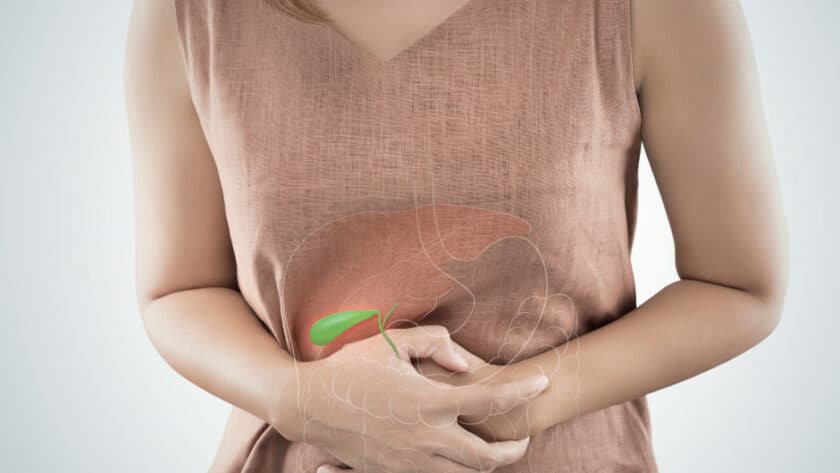Keto Diet for Individuals with Gallbladder Issues
Are you considering the keto diet but worried about how it might affect your gallbladder? You’re not alone. Many people have concerns about the high-fat nature of the ketogenic diet and how it might impact their gallbladder health. In this article, we’ll explore the relationship between the keto diet and gallbladder issues, provide specific answers to common questions. And offer solutions for those who want to try keto without compromising their gallbladder health.
Understanding the Gallbladder and Its Function
Before diving into the keto diet’s impact on the gallbladder, it’s essential to understand the gallbladder’s role in the body. The gallbladder is a small, pear-shaped organ located beneath the liver. Its primary function is to store bile, a fluid produced by the liver that helps break down fats in the digestive system. When you consume a meal high in fat, the gallbladder releases bile into the small intestine to aid in digestion.
Common Gallbladder Issues
Gallbladder problems can arise for various reasons, but the most common issue is the formation of gallstones. Gallstones are hardened deposits of bile and cholesterol that can cause pain and inflammation. They can range in size from a grain of sand to a golf ball and can lead to complications if they block the bile ducts. Some common gallbladder issues include:
1. Cholecystitis: Inflammation of the gallbladder, often caused by gallstones.
2. Gallstone pancreatitis: A condition where a gallstone blocks the pancreatic duct, leading to inflammation of the pancreas.
3. Biliary colic: Severe abdominal pain caused by a gallstone temporarily blocking the bile duct.
If you have a history of gallbladder issues or have had your gallbladder removed (cholecystectomy), it’s essential to consider how your diet might impact your digestive health.
The Keto Diet and Gallbladder Health
The ketogenic diet is a high-fat, low-carb eating plan designed to help the body enter a state of ketosis, where it burns fat for fuel instead of carbohydrates. While the keto diet has been shown to help with weight loss and improve various health markers, its high-fat content raises concerns for those with gallbladder issues.
The primary concern is that a high-fat diet might increase the risk of gallstone formation or exacerbate existing gallbladder problems. However, research on this topic is limited and somewhat conflicting. Some studies suggest that rapid weight loss, which can occur on the keto diet, may increase the risk of gallstone formation. On the other hand, other research indicates that a high-fat, low-carb diet may actually decrease the risk of gallstones by promoting bile flow.
It’s important to note that individual responses to the keto diet can vary. And what works for one person may not work for another. If you have a history of gallbladder issues or have had your gallbladder removed, it’s crucial to consult with your healthcare provider before starting the keto diet.
Tips for Trying Keto with Gallbladder Issues
If you’re interested in trying the keto diet but have concerns about your gallbladder health, consider the following tips:
1. Consult with your healthcare provider: Always speak with your doctor or a registered dietitian before starting any new diet, especially if you have a history of gallbladder issues or have had your gallbladder removed.
2. Gradually increase fat intake: Instead of diving headfirst into a high-fat diet, consider gradually increasing your fat intake over several weeks. This can help your body adjust to the higher fat content and may reduce the risk of gallstone formation.
3. Choose healthy fats: Focus on consuming healthy fats, such as those found in avocados, nuts, seeds, and olive oil. These fats are less likely to contribute to gallstone formation and provide additional health benefits.
4. Stay hydrated: Drinking plenty of water can help prevent gallstone formation by promoting bile flow and diluting bile salts.
5. Consider supplements: Some supplements, such as ox bile or digestive enzymes, may help support digestion and bile flow in individuals with gallbladder issues. Consult with your healthcare provider before starting any new supplements.
6. Monitor your symptoms: Keep track of any changes in your digestive health while on the keto diet. If you notice an increase in pain or other symptoms, consult with your healthcare provider.
Conclusion
The keto diet can be a helpful tool for weight loss and overall health. But it’s essential to consider how it might impact your gallbladder health. By consulting with your healthcare provider, gradually increasing your fat intake, and focusing on healthy fats, you can potentially enjoy the benefits of the keto diet without compromising your gallbladder health. Remember, individual responses to the keto diet can vary. So it’s crucial to monitor your symptoms and work closely with your healthcare provider to find the best approach for you.
In summary, the keto diet can be a viable option for individuals with gallbladder issues. But it’s essential to take precautions and consult with a healthcare provider before starting the diet. By following the tips provided in this article, you can potentially enjoy the benefits of the keto diet without compromising your gallbladder health.


